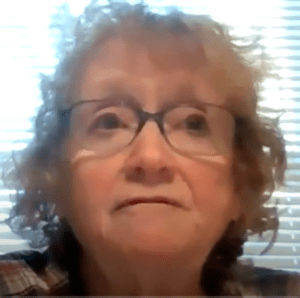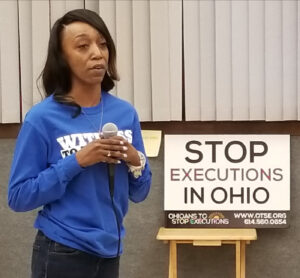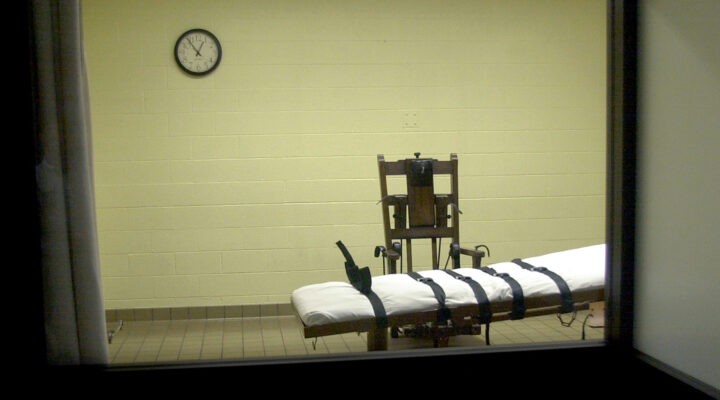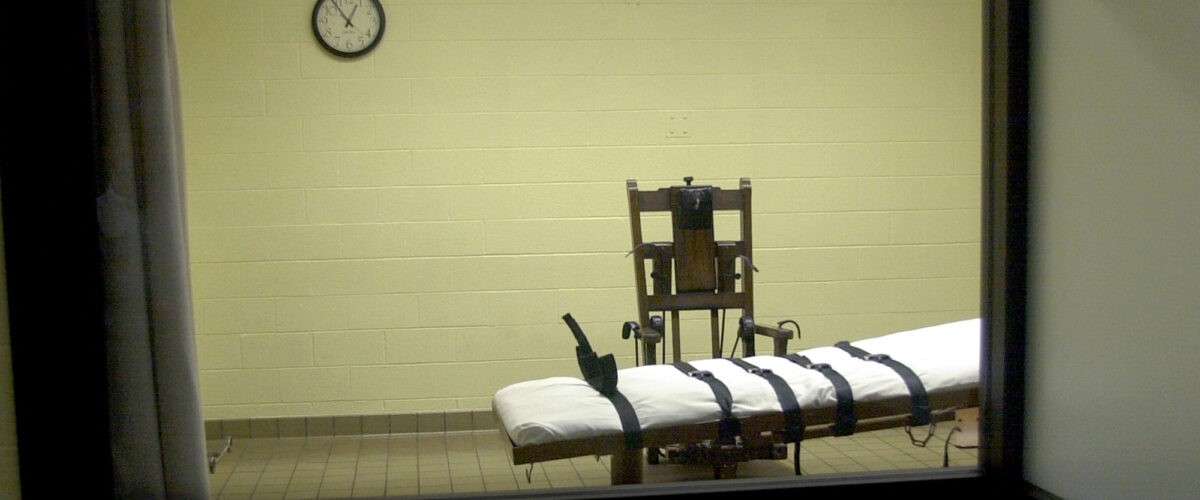Activists seeking to abolish the death penalty in Ohio took their case to the court of public opinion April 7 with virtual testimony from the family and friends of homicide victims about the immorality and futility of capital punishment.
“Even though I was the sister of a murder victim, I realized I didn’t want his killer to die — I couldn’t justify the pain that killing the murderer would have done to another family,” said Columbus resident Jane Mitchell, whose brother was murdered in 2006. She spoke during “Capital Punishment: An Interfaith Conversation and Co-Victim Perspectives,” a livestreamed discussion presented by Ohioans to Stop Executions.

Jane Mitchell
The event was hosted by clergy from the Mennonite Christian and Reform Judaism traditions and was presented as state lawmakers consider House and Senate bills to end Ohio’s death penalty.
Mitchell said she had to wrestle with her own views about capital punishment after her brother’s death: “I want justice for my brother. I believe in consequences, and at the time, I was angry enough that my reaction was I want to catch the killer and put him to death. But then I had to stop and think about how I really felt about the death penalty.”
She eventually concluded that executing the killer or killers — who still haven’t been caught — would take too long, would not provide true justice and would only create more pain and suffering.
“I wanted the killer to have consequences. I wanted him to be incarcerated for the rest of his life,” she said. “I knew what we went through, and I couldn’t justify putting another family through that. That’s why I truly believe Ohio needs to get rid of the death penalty.”

Joel Miller
Mitchell and other participants have experienced firsthand the trauma and loss that comes with homicide and with the failures of the death penalty system, said Joel Miller, pastor of Columbus Mennonite Church.
Mennonites, as pacifists, identify with that suffering through their own historic persecution at the hands of governments and other faiths, he explained. “Having this memory of state violence being directed at us is itself a reason to be opposed to the death penalty.”
Their reading of Scripture also inspires Mennonites’ desire to see capital punishment abolished in Ohio, he added. “We have understood the teachings, life and ministry of Jesus as an outright rejection of violence.”

Rick Kellner
Jewish opposition to the death penalty also is clear and long established, said Rabbi Rick Kellner of Congregation Beth Tikvah in Columbus.
Kellner cited verses in Genesis and Exodus that condone executing killers but explained there were no adequate alternative punishments for murderers available at the time. Since then, Jewish scholarship and tradition have increasingly marginalized the practice before condemning it altogether.
“This speaks to such a critical concern we have today when someone who is innocent might end up on death row… and ultimately be executed,” Kellner said.
Claims by proponents that executions bring closure to victims’ families are not based in reality, said Cleveland resident LaShawn Ajamu, whose brother James was shot to death in 1997.

LaShawn Ajamu
“I say that’s just political grandstanding. I know an execution wouldn’t have helped my family heal. Ohio does a disservice to families when a killer is sentenced to death because the family has to put their healing process on hold for decades through the capital punishment appeals process,” she explained. “In our case, without an execution, we began our healing as soon as the court case was over. If there had been a death sentence, we would probably still be waiting.”
Besides, there is no comfort in capital punishment because it only generates more pain, she added. “Honestly, I don’t want the state using my pain or anyone else’s pain to justify another family losing their loved one, even if they are guilty. There is no such thing as closure because there will always be an empty seat at the table.”
Like other family and friends who participated in the discussion, Ajamu criticized the state for spending more money and time on death penalty cases than on providing mental health care and other resources to families and friends of victims.
“My plea: Instead of wasting resources trying to execute people, Ohio could do much better helping victims’ families. My family could have used counseling and other support,” she said.
Few in the state know that family and friends of homicide victims are victims, too, said Jonathan Mann, a Columbus resident whose father was murdered.
“The general public in my experience isn’t aware of the lack of support co-victims receive. We are often left twisting in the wind. Ending capital punishment isn’t simply about the perpetrators or the deceased, but about the co-victims who live on trying to pick up the pieces of their families’ lives while mapping out a path to healing.”

Lynette Grace
Lynette Grace of Barberton, who was stabbed in an attack that killed a friend, spoke about the need to practice forgiveness instead of revenge: “My faith doesn’t condone revenge seeking, and the death penalty doesn’t bring the murdered person back. And if the person arrested is innocent, then another innocent life is lost.”
Grace said her friend’s son, who committed the murder and her attack, has since asked for forgiveness, which she readily granted. “He said he was then able to forgive himself, and that heals me as well.”
Most Ohioans are opposed to capital punishment, Grace said, referencing a 2021 survey showing 59% of registered voters in the state favor replacing the death penalty with a sentence of life in prison without the possibility of parole.
“If we have mercy and faith and forgiveness in our hearts, why can’t our justice system?” Grace asked. “We are the ones who struggle with this, yet we make it possible to forgive.”
Related articles:
Utah bill to end capital punishment stalls in committee
Arkansas panelists describe capital punishment as ‘legalized lynching’
Ending capital punishment in Ohio should be a ‘pro-life’ ideal, evangelical speakers declare


